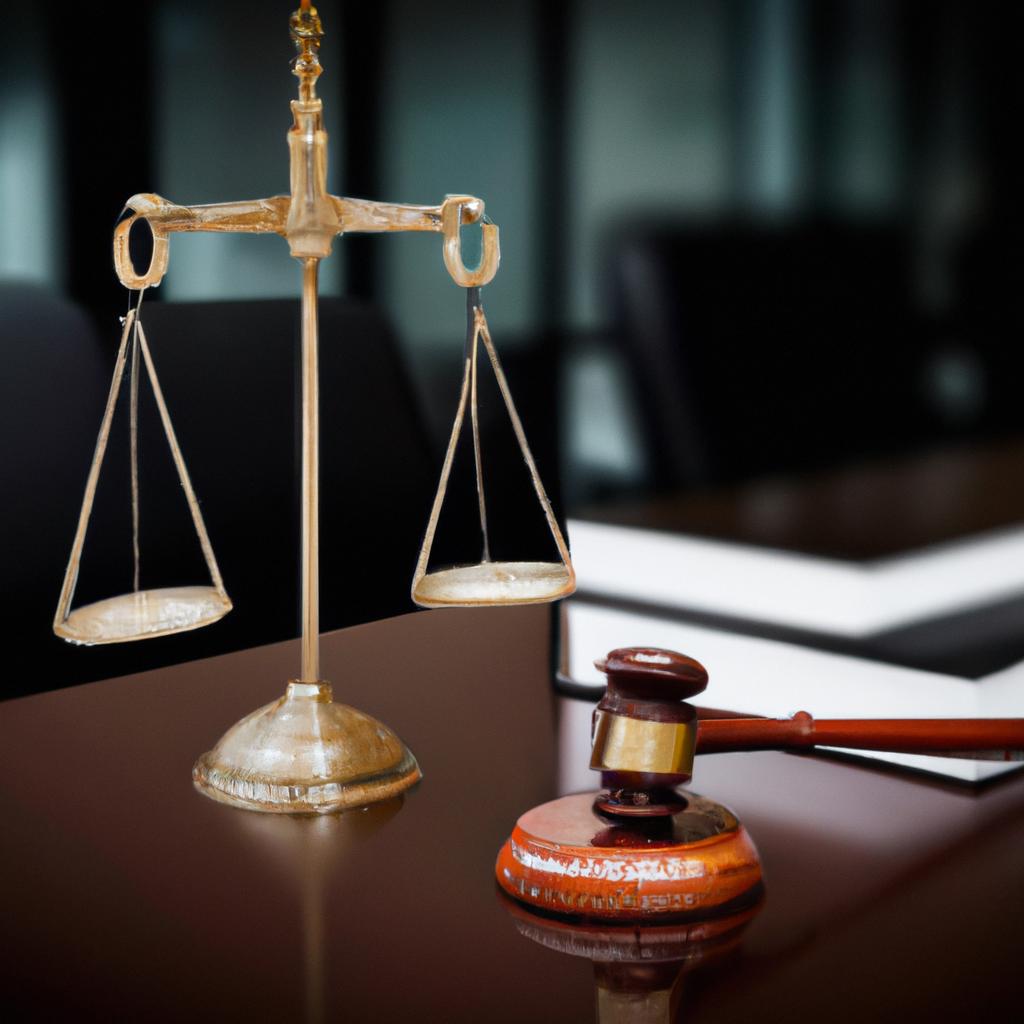In the realm of estate planning, the notion of a last will and testament is a cornerstone for individuals to assert their final wishes upon passing. However, circumstances may arise where changes or additions must be made to a pre-existing will. Enter the codicil to a will, a legal document that serves as a supplementary and amendatory tool to an original will. In this article, we will delve into the intricacies of codicils, their purpose, and the proper procedures to ensure the validity and effectiveness of such documents. At Morgan Legal Group, located in the heart of New York City, our team of experienced lawyers specialize in estate planning, probate, elder law, Wills, and trusts. Join us as we navigate the nuances of codicils and shed light on their significance in the realm of testamentary dispositions.
Understanding the Purpose of a Codicil in Estate Planning
When it comes to estate planning, it is crucial to understand the purpose of a codicil in relation to a will. A codicil is a legal document that allows an individual to make changes or additions to their existing will without having to create an entirely new document. This can be beneficial in situations where only minor modifications are needed, such as updating beneficiary designations or making changes to specific bequests.
Creating a codicil can help ensure that your wishes are accurately reflected in your estate plan, providing clarity and avoiding potential conflicts among beneficiaries. It is important to consult with an experienced estate planning attorney, like those at Morgan Legal Group in New York City, to ensure that your codicil is properly drafted and executed in accordance with state laws. With the guidance of a knowledgeable attorney, you can make informed decisions about how to best protect your assets and provide for your loved ones.

Key Considerations When Creating a Codicil to a Will
In creating a codicil to a will, there are several key considerations that must be taken into account to ensure that the document is legally valid and accurately reflects the testator’s wishes. One important factor to keep in mind is that a codicil should always be executed with the same formalities as a will, meaning that it must be in writing, signed by the testator, and witnessed by at least two competent individuals who are not beneficiaries of the will.
- Specificity: It is crucial that the codicil clearly identifies the will it is amending and clearly states the changes that are being made. Ambiguity or uncertainty in language can lead to potential challenges and disputes in probate court.
- Review with an Attorney: Before finalizing a codicil, it is highly recommended to consult with an experienced estate planning attorney who can provide guidance on the legal implications of the changes being made and ensure that all requirements are met.

Common Mistakes to Avoid When Amending a Will with a Codicil
When amending a will with a codicil, it is crucial to avoid common mistakes that could lead to confusion or even legal challenges down the road. One common mistake to avoid is failing to properly identify the original will that is being amended. It is important to clearly reference the specific will that is being amended in the codicil to avoid any confusion or ambiguity.
Another common mistake to avoid when amending a will with a codicil is failing to properly execute the codicil according to state law requirements. It is essential to ensure that the codicil is signed and witnessed in accordance with the applicable laws to ensure its validity. Additionally, it is important to consider whether a complete rewriting of the will may be a better option than adding multiple codicils over time, as this can help avoid potential conflicts and confusion.

Consulting with an Experienced Attorney for Codicil Drafting and Execution
When it comes to making changes to your will, a codicil can be a useful tool to ensure your wishes are accurately reflected. is essential to avoid any legal pitfalls or disputes that may arise. Our team at Morgan Legal Group in New York City specializes in estate planning and can assist you with the process.
During the consultation, our skilled attorneys will carefully review your existing will and discuss the changes you wish to make. We will work with you to draft a codicil that meets all legal requirements and accurately reflects your wishes. With our expertise in probate and estate law, you can trust that your codicil will be executed properly and stand up in court if challenged.
Q&A
Q: What is a codicil to a will?
A: A codicil is a legal document that can be used to make changes or updates to an existing will without completely rewriting the entire document.
Q: When might someone need to create a codicil to their will?
A: Someone might need to create a codicil to their will if they experience a major life change, such as a marriage, divorce, birth of a child, or acquisition of new assets, that necessitates updates to their estate plan.
Q: How does one go about creating a codicil to their will?
A: To create a codicil, one must follow the same legal and procedural requirements as creating a will, including having the document witnessed and signed in accordance with state laws.
Q: Are there limitations to what changes can be made in a codicil?
A: While a codicil can be used to make a variety of changes to a will, there may be limitations on the types of changes that can be made depending on state laws and the complexity of the amendments.
Q: Is a codicil a legally binding document?
A: Yes, a properly executed codicil is a legally binding document and will be upheld in probate court as long as it meets all the legal requirements for validity.
In Conclusion
In conclusion, a codicil to a will can be a useful tool for making changes to your estate plan without having to completely rewrite your will. Whether you need to add, modify, or revoke provisions in your will, a codicil can provide a simple and efficient way to ensure that your final wishes are carried out. However, it’s important to carefully consider any changes before creating a codicil and to consult with a legal professional to ensure that your intentions are clearly and accurately reflected. By taking the time to review and update your will as needed, you can rest assured that your legacy will be preserved and your loved ones will be taken care of according to your wishes.
 Codicil to Will: An Essential Addition to Your Estate Planning
Codicil to Will: An Essential Addition to Your Estate Planning
Estate planning is a crucial process that involves making decisions about the distribution of your assets and property after your death. While creating a will is a common practice, it is important to understand how a codicil to will can be a valuable addition to your estate planning. In this article, we will delve into what a codicil is, why you may need one, and how it can benefit you and your loved ones.
What is a Codicil to Will?
A codicil to will is a legal document that is used to make minor changes or additions to an existing will. It is considered an amendment to your will, and it must be created and executed with the same legal formalities as your original will. A codicil must be in writing, signed by you, and witnessed by at least two individuals who do not benefit from the will. This process ensures that your codicil is legally binding and will be upheld in court.
Reasons You May Need a Codicil to Will
There are various situations in which you may need to create a codicil to will, such as:
1. Changes in Your Family Situation: Life is constantly changing, and your family dynamics may change as well. This could be due to a birth, death, marriage, divorce, or estrangement. Any change in your family situation can have a significant impact on your will, and a codicil allows you to make necessary updates without having to create a new will.
2. Changes in Your Financial Situation: Your financial situation may also change over time, and this may require adjustments to your will. For instance, if you acquire new assets or sell off existing ones, you may want to specify how they should be distributed amongst your beneficiaries. A codicil allows you to make these changes without the need to redo your entire will.
3. Changes in State Laws: State laws regarding estate planning can change at any time, and these changes may affect your will. A codicil can help you stay up-to-date with these laws and ensure that your wishes are still in line with the current legal requirements.
Benefits of Including a Codicil to Will in Your Estate Plan
1. Cost Savings: One of the main benefits of a codicil to will is that it can save you time and money. Instead of creating a new will every time you need to make a minor change, a codicil allows you to modify your existing will. This can help you avoid the expense of hiring an attorney to redo your will every time you need to make a change.
2. Flexibility: A codicil gives you the flexibility to make changes to your will without having to worry about making mistakes. It also allows you to make multiple amendments over time as your circumstances and wishes may change.
3. Protection for Your Loved Ones: By including a codicil to will in your estate plan, you can ensure that your loved ones are taken care of after your passing. Your changes or additions to the will can provide for new family members or reflect changes in your relationships with existing beneficiaries.
Practical Tips for Creating a Codicil to Will
1. Seek Professional Advice: When creating a codicil to will, it is essential to seek the advice of a legal professional. An attorney specializing in estate planning can guide you through the process and help ensure that your codicil complies with all legal requirements.
2. Be Clear and Specific: It is crucial to be clear and specific when making changes or additions to your will through a codicil. This clarity will help avoid any confusion or legal disputes after your passing.
3. Keep Your Codicil Safe: Once your codicil has been properly signed and witnessed, it should be kept in a safe and secure location with your original will. Be sure to let your executor or loved ones know where to find these documents in the event of your passing.
Conclusion
A codicil to will is an essential addition to any estate plan as it allows you to make changes and additions to your will quickly and easily. It provides flexibility, cost-savings, and peace of mind, ensuring that your final wishes are carried out after your death. Remember to seek professional advice, be clear and specific, and keep your codicil safe to ensure its validity and effectiveness. Start planning for your future today and include a codicil to will in your estate plan.

